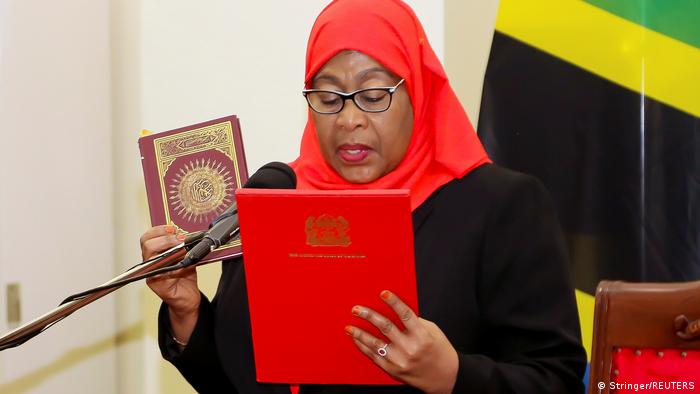The African Freedom of Expression Exchange (AFEX) welcomes the commitment of the new President of Tanzania, Samia Suluhu Hassan, to uphold press freedom.
President Samia Suluhu Hassan, who is at the helm of the Tanzania leadership following the demise of John Magafuli, exhibited that sign of hope for a new dawn for press freedom and freedom of expression in the country when on April 6, 2021, she ordered the reopening of media houses shut down during the tenure of the late President John Magafuli.
This move seems to signal a break away from the repressive regime of press freedom and freedom of expression of the late President John Pombe Magafuli, under whom several media houses were closed down, dissidents prosecuted or harassed before courts with trumpet charges, while oppressive media regulations were adopted and the internet was disrupted.
Many freedom of expression advocates in Tanzania have also welcomed this directive as a good move in the right direction, however with some reservation.
”First, I would like to say it’s too early to be certain or even make judgments, but we are hopeful that under President Samia Suluhu Hassan the government will have more respect of basic human rights, freedom of speech/media included, as the sign shows”, said Andrew Marawiti, Executive Director of Media Institute of Southern Africa (MISA) Tanzania, in an e-mail to AFEX.
Nquaba Matshazi of MISA Zimbabwe also seems to share the mixed reservation about the directive of the new president.
”We were watching the developments there with interest because the Minister of Information said the statement only applied to online platforms”, said Matshazi.
In 2020 alone, there were many incidents of attacks on press freedom and freedom of expression both offline and online were recorded, with the weaponization of media regulations law to cripple and shutdown critic media outlets.
For example, on July 6, Tanzania Communications Regulatory Authority suspended Kwanza Online TV for 11 months. The online TV was accused of allegedly publishing misleading content that breached professional ethics.
June 23, Tanzania Daima, a privately-owned media was banned from publication. The media outlet saw its license revoked by Tanzania’s Information Services Department. The authorities alleged that the newspaper breached the media code of ethics and the country’s law.
On April 16, the Tanzania Communications Regulatory Authority, banned Mwananchi, an online newspaper from publishing for six months. The media outlet was also slapped with a US$ 2,173 fine for allegedly publishing false information about COVID-19.
Further on April 9, 2020, a court in Dar es Salam imposed a US$ 1,300 fine on Maxence Melo, founder of the online news and whistleblowing platform; Jamii Forums. The journalist refused to reveal the identities of the platform whistleblowers and was accused of obstructing police investigations.
Still on the use of legal frameworks to silence critic media, and to trample on freedom of information and expression.
Tanzanian authorities on July 17, 2020 adopted a new law that entrenched the frustration on online media, freedom of expression online. The law called for the taxation of online media and repress speech online, breaches privacy, and free access to information.
On October 27, 2020, a day before the general elections in Tanzania, internet access, social media was blocked. The internet shutdown lasted almost a week.
While AFEX welcomes the move of the new President, as a progressive one and in the right direction towards the protection of the freedom of expression, indispensable for any democratic regime to thrive. In this regard, we urge the Tanzania Communications Regulatory Authority to take the necessary steps to comply with the President’s order.
We call on the President to not limit the opening of closed media outlets to only online media but extend the directive to all types of media outlets.
Furthermore, AFEX is calling on the media fraternity and journalists to demonstrate professionalism and high standards of ethics in discharging their role.
Finally, we urge the current government to engage in consultations on the freedom of expression situation in the country and take the necessary steps to review the legal frameworks and provisions that are detrimental to the full exercise of freedom of expression in compliance with regional and international treaties and protocols ratified by the Tanzania authorities.




